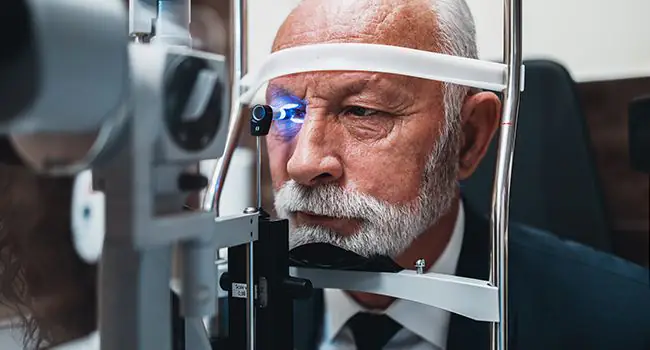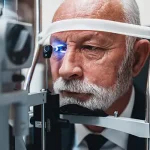COVID-19 has severely impacted surgeries that required immediate attention, thereby leading to a complete halt of surgical procedures. With the rising cases, these elective procedures have started accumulating.
Cataract, the second leading cause of preventable blindness in the world progresses gradually. According to the recent data by the National Programme for Control of Blindness (2018-19), an average of 5,57,568 cataract surgeries are performed every month in India. With the pandemic conundrum, the entire nation had to shut down all surgery services, which resulted in a significant backlog of surgeries requiring immediate attention. Over the past few months, due to the lockdown, people have become reluctant to seek healthcare services, which has led to many more cases of mature and hyper mature cataracts. At present, with a better understanding of the safety precautions, the Government of India (GoI) has given clearance for the proper functioning of eye care facilities along with several protocols for the safety of patients and staff.
Cataract is often neglected and delayed by many people. The reasons include:
- Fear about the surgery:
It is anticipated that the surgery is painful and risky. With the advancement in technology, most cases do not require stitches and sutures to close the tiny incision. You can go home right after the surgery and resume your normal activities the day after the surgery. However, you still need to avoid bending or lifting anything heavy for up to a few weeks after the procedure. Cataract surgery nowadays has become a daycare procedure.
- Cataract should be treated only when it ripens:
Waiting for the cataract to ripen makes the surgery more difficult. The longer you have a cataract, the firmer it becomes, resulting in a more complicated procedure and posing a greater risk of restoring vision. When the cataract becomes too firm, it requires more energy, and it becomes excruciating to remove it. This additional energy can result in an emergency with poor visual recovery. Chances are you might develop other unwanted side effects such as swelling of the cornea.
- We can live with cataract:
Cataract can slow down your active lifestyle. You can find difficulty in driving at night. Due to low vision, you can no longer participate in regular activities like reading, driving and hobbies like weight training, cardio exercises, swimming. The side-effects of cataracts can become worse if you keep on delaying your treatment.
Some of the common symptoms associated with cataract are:
- Cloudy, hazy, or blurred vision
- Halos around lights
- Low night vision/ Difficulty in driving at night
- Impaired colour vision
- Sensitivity to bright light
Here comes the real question: Should you delay cataracts?
Cataract, the most prevalent age-related eye condition is responsible for 51 per cent of blindness globally and has been a rising concern during the pandemic due to delay in surgeries. With the implementation of lockdown and fear of the virus, more cases of mature cataracts have been reported over the past six months. Untreated cataracts progress to an extent where vision is seriously impaired, leading to full or partial sight-loss. Schedule an appointment with your ophthalmologist as soon as you experience symptoms of cataract; he’ll be the right person to advise you on treatment. Delaying treatment against the advice of your doctor can be dangerous to your eyesight. Remember that cataract surgery has a high success rate.
The right place for cataract surgery:
Leverage one of the most advanced cataract eye surgery treatments: Robotic Femtosecond laser, amongst the world’s foremost laser-automated technology at Centre for Sight. The surgery provides a blade-free cataract experience and comes with greater precision and safety. It gives a better visual outcome with quicker recovery.
Article: Delaying Cataract Surgery? Here is why you shouldn’t!
Author: CFS Editorial Team | Nov 06 2020 | UPDATED 07:00 IST
*The views expressed here are solely those of the author in his private capacity and do not in any way represent the views of Centre for Sight.





